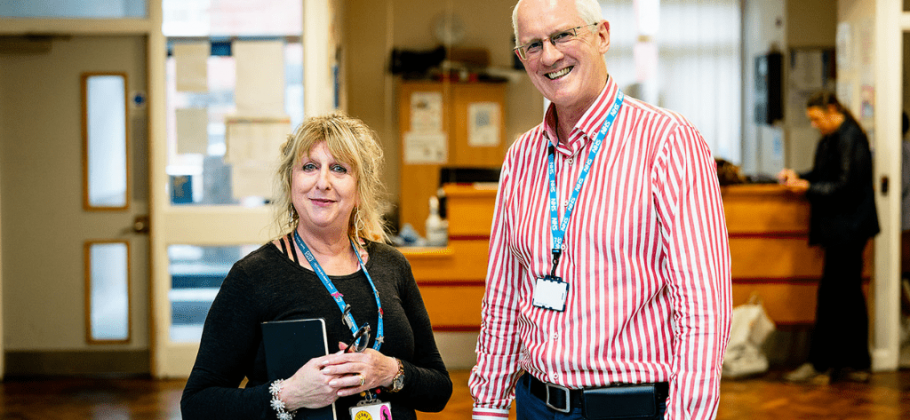Access to vital GP and community care patient data via the Medical Interoperability Gateway (MIG) is increasing healthcare efficiency and improving care quality for over a million people in the Bristol area.
The Connecting Care Partnership has brought together a shared care record from across Bristol, North Somerset and South Gloucestershire since 2013. Today, it supports 85 GP practices, three community providers, three acute hospitals, a mental health trust and three councils. Connecting Care brings together 20 clinical and social care systems allowing 24 health and care organisations to view the data.
The MIG, from Healthcare Gateway, is a core element of Connecting Care, giving over 6,000 health and care professionals role-based access to primary care and community health records, End of Life Care Plans, clinical letters and correspondence from the three acute hospitals in the region. Presenting information such as patient demographics, medications, diagnoses, prescriptions, warnings and alerts, the MIG’s easily-accessible summary views support faster, more informed care decisions that reduce duplication and mistakes, prevent unnecessary hospital admissions and increase delivery efficiency.
“Our colleagues in health and the councils now release time to care because they don’t have to search around for information anymore,” said Fran Draper, Senior Project Manager for the Connecting Care Programme.
“Pre-operative assessment used to take around 2.5 hours per person. Now it takes under a minute. Bristol City Council safeguarding team now spend 15% less time dealing with telephone calls from health colleagues with safeguarding concerns about their patients. It also helps reduce hospital admissions if clinical staff can see that there is alternative care in place and unnecessary home visits if staff can see that someone has already been admitted.”
“The GP and community care data that the MIG supplies is the bedrock of Connecting Care,” said Draper. “Over the last six years, we have gradually expanded the number of MIG views and the amount of data we present.”
“The MIG allows us to display information across health and care settings. GPs and social workers can see clinical letters and correspondence including hospital discharge summaries while hospital doctors and consultants can check GP medical histories when caring for new patients. Many GPs like the MIG’s summary view because it is so clear and information is easy to find.”
Out-of-hours GPs were one of the first groups to benefit when Connecting Care went live in 2013. Before that, endless phone calls and letters were the only way to find missing information
“We had no idea about past prescribing, recent GP visits, safeguarding, no documents, no results, nothing,” said Dr Mike Taylor, Lead GP at the Homeless Health Service. “Without that patient history, extra risk is unavoidable. When Connecting Care became available, it was like the lights going on – it was a massive step forward. You could see that patients had consulted their doctor or that a care plan was in place.”
There is now no need to retake patient histories. Any new information is merged with the existing record. Instant access to GP information, End of Life Care plans and clinical documents reduces out-of-hours workload and enables better quality care.
“During out of hours care in the past, if we couldn’t get through to a patient on the phone, we had to ask the police or fire brigade to knock the door down and make sure patients hadn’t collapsed,” continued Taylor. “Now we can see if they were admitted to hospital and can contact the consultant or GP. Connecting Care has saved me a tremendous amount of time and spared a lot of Bristol’s front doors!”
Since 2016, Connecting Care has been using a Restful FHIR API to transform structured data into messages that display controlled drug and Opioid Substitution Therapy information to substance misuse workers, GPs and other clinical users.
This helps prevent duplicate prescribing of opiate substitutes like methadone and subutex – avoiding substance misuse, reducing costs and supporting clinical efficiency. Adopting FHIR messaging represents significant progress in Connecting Care’s journey towards open standards.
“Along with allergies, mental health issues and other health conditions, we can see which medication their GP has prescribed which is really effective in avoiding duplicate prescribing,” said Zehra Tahtakilic, Recovery Support Worker at Bristol Specialist Drug & Alcohol Service.
“Before, we would be calling the GPs right, left and centre so it’s definitely saved us a lot of time. We help people who haven’t got a GP so MIG data is very useful to find out if they are already registered or not.”
Role-based access to Connecting Care data reveals upcoming outpatient and community appointments. Instant record checking out of hours and at weekends now enables the NHS Blood and team to safely carry out their important work. At North Bristol Trust, two pharmacy staff who used to spend every day telephoning GPs for medication information have more time to spend on core work.
Connecting Care has more partners contributing and viewing MIG data than any other UK interoperability programme, hitting a new peak of 37,500 user views in May 2019. MIG is supporting Connecting Care’s use of national interoperability standards, structured data and two-way data flows









